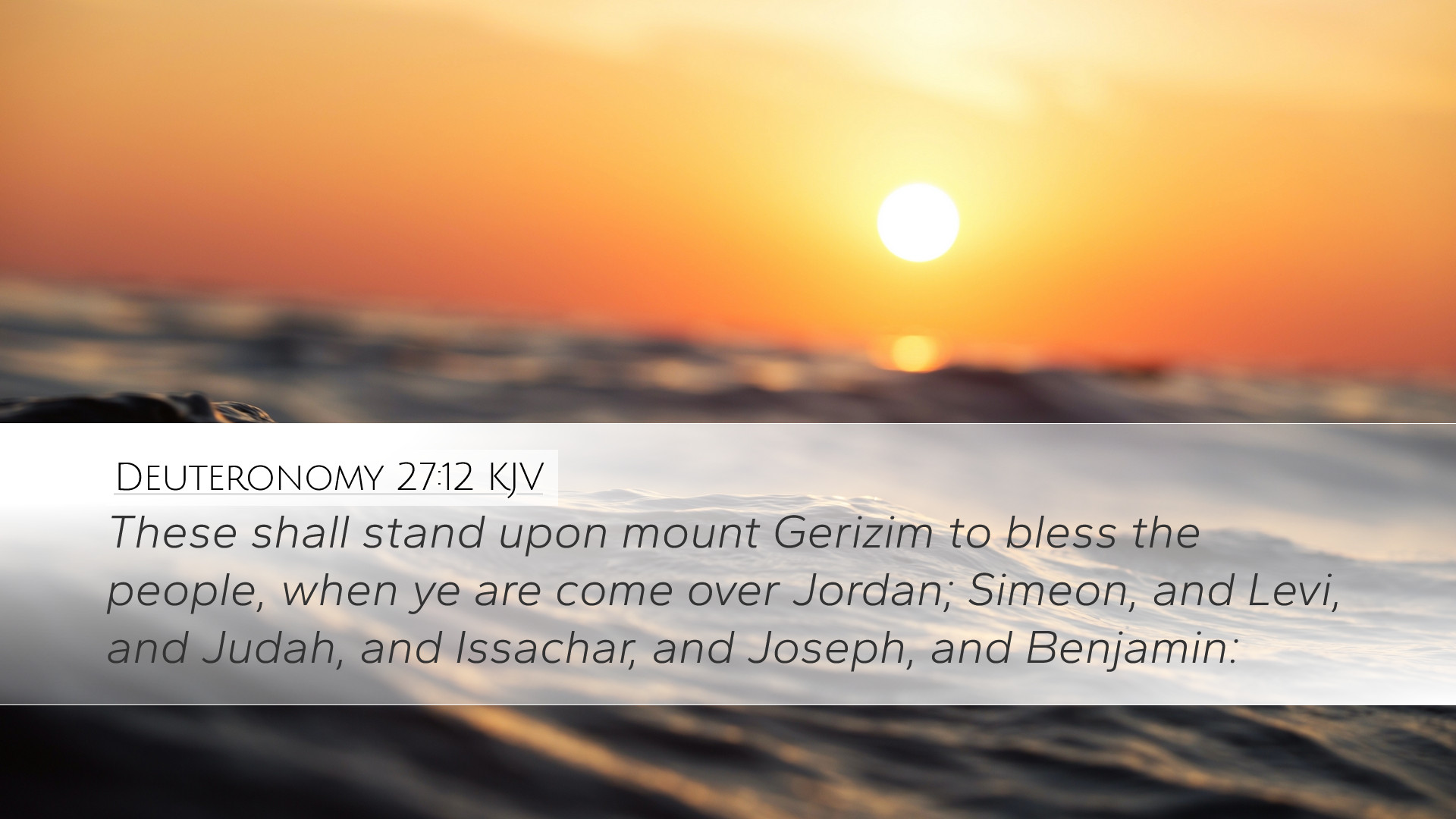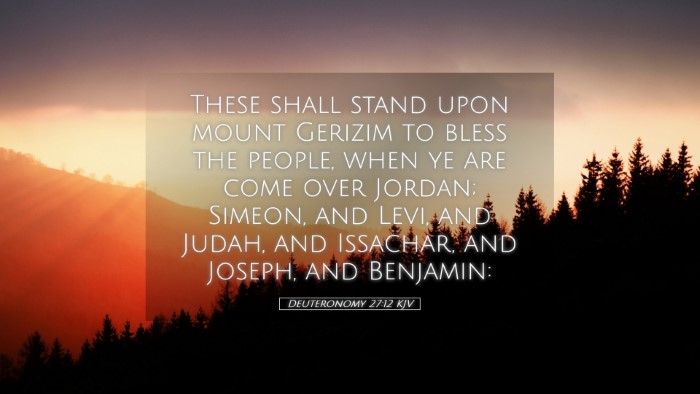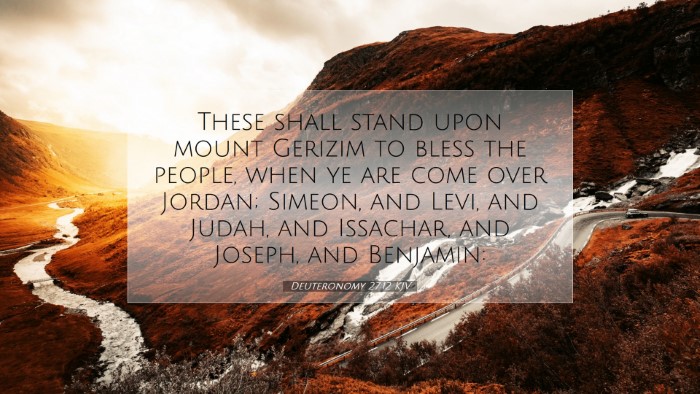Commentary on Deuteronomy 27:12
Verse Reference: Deuteronomy 27:12 - "These shall stand upon mount Gerizim to bless the people, when ye are come over Jordan; Simeon, and Levi, and Judah, and Issachar, and Joseph, and Benjamin."
Introduction
The verse illustrates a pivotal moment in the establishment of Israel's covenantal relationship with God. It highlights the significance of communal blessing and the role of specific tribes in proclaiming God’s favor upon the people. It serves as a reminder of the responsibilities and privileges that come with the covenant.
Historical Context
The Israelites are on the verge of entering the Promised Land, having wandered in the wilderness for forty years. Deuteronomy serves as a series of speeches by Moses, reminding the Israelites of their covenant with God and the laws they are to follow. At Mount Gerizim and Mount Ebal, the tribes are to articulate blessings and curses, marking the significant choice before them: obedience or disobedience.
Analysis of the Tribes
- Simeon: Often seen as a tribe associated with violence, yet it remains part of the divine blessings, emphasizing God's grace.
- Levi: The priestly tribe, symbolizing sanctification and service to God, leading worship and instruction.
- Judah: The royal tribe, illustrating leadership and the lineage of David, which culminates in Christ.
- Issachar: Known for wisdom and understanding, this tribe’s role in the blessing highlights discernment and prophetic insight.
- Joseph: A double portion represented by Ephraim and Manasseh, showcasing God's abundance and choice.
- Benjamin: The smallest tribe, yet significant in its closeness to Judah and its foundational role in Israel's history.
Theological Implications
This verse symbolizes a deeper theological truth concerning communal worship and collective identity. The act of blessing signifies God's commitment to His people. Every tribe, representing different attributes and roles within the community, is called to participate in this divine ceremony, highlighting unity despite diversity.
Matthew Henry remarks on the unity of the chosen people as they collectively affirm their relationship with God. The blessings pronounced are not merely rituals; they are foundational for the identity of Israel as a blessed nation under God’s sovereignty.
Practical Applications
For pastors and leaders today, this verse reminds of the importance of invoking blessings within the community of faith. It speaks to the necessity of recognizing and affirming each individual's role in the body of Christ. As the tribes were called to stand together, so too are modern believers called to unite in purpose and mission.
Albert Barnes emphasizes that the blessings could be considered as models for how communities can encourage one another, supporting various gifts and callings within the church.
Conclusion
Deuteronomy 27:12 encapsulates a significant moment in scriptural history that transcends its immediate context. It reflects on the nature of communal identity, God’s promises, and the individual roles within the collective. Modern-day theologians and scholars can extract rich insights about covenant, blessing, and community responsibility.
As believers reflect on this verse, they are reminded of God’s enduring faithfulness and the collective calling to serve and bless one another as part of the body of Christ. This serves to further the mission of God in a world that desperately needs to see His love and power manifested through His people.


